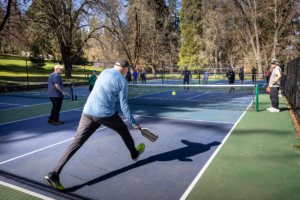SOU to facilitate AG’s town hall
(Ashland, Ore.) — Oregon Attorney Dan Rayfield will hold a town hall event from 6 to 7:30 p.m. on Thursday in the Rogue River Room of Southern Oregon University’s Stevenson Union. The event – part of the Rayfield’s ongoing series of “Safeguarding Oregon: Federal Oversight” meetings – will feature a panel with the attorney general, State Sen. Jeff Golden and State Rep. Pam Marsh, with moderator Jeremiah Rigsby of CareOregon.
The town hall will center on decisions and actions by the federal administration and their impacts on Oregon and Oregonians. It will include an opportunity for attendees to give public testimony and share their perspectives, and also to ask questions of the elected officials. American Sign Language interpretation will be provided.
Those who are interested in attending, signing up to give public comment or submitting questions in advance can RSVP here.
The statewide “Safeguarding Oregon: Federal Oversight” series began with an April town hall on the Portland State University campus, where Rayfield was joined by Arizona Attorney General Kris Mayes. Rayfield’s focus for the meetings is to hear testimony from across Oregon as he shapes legal strategies to protect the state’s interest.
On his “Federal Oversight” website, the attorney general invites southern Oregon residents to “Share your experience of how you’ve been impacted by federal actions – whether around healthcare, support for veterans, schools, libraries, or federal workers or something else.”
SOU is serving as the town hall’s host and facilitator, and encourages residents to attend and learn more about issues and potential issues. The university does not endorse viewpoints that may be expressed during the event.
Rayfield has appointed a 14-member “Federal Oversight and Accountability Cabinet” that includes four union officials, two law professors and representatives from various other Oregon organizations. The cabinet is intended as “an innovative partnership between the Oregon Department of Justice and key communities in Oregon’s work to defend against potential federal impacts on the state and its people,” according to the website.
-SOU-



 The free event is a celebration of curiosity and connection. The open house is a one-stop gateway to all that OLLI offers, with approximately 150 fall course previews, demonstrations and exhibits from dozens of like-minded community organizations.
The free event is a celebration of curiosity and connection. The open house is a one-stop gateway to all that OLLI offers, with approximately 150 fall course previews, demonstrations and exhibits from dozens of like-minded community organizations.



 Attendees at the event – hosted by the Southern Oregon Behavioral Health Initiative – enjoyed a range of relaxing and restorative activities, including painting, essential oil blending and other hands-on crafts that invited creativity and mindfulness. The stretching section offered a calm space to breathe and gently move, while the sunny afternoon provided the perfect setting to reconnect with others in a low-pressure, welcoming environment.
Attendees at the event – hosted by the Southern Oregon Behavioral Health Initiative – enjoyed a range of relaxing and restorative activities, including painting, essential oil blending and other hands-on crafts that invited creativity and mindfulness. The stretching section offered a calm space to breathe and gently move, while the sunny afternoon provided the perfect setting to reconnect with others in a low-pressure, welcoming environment.


